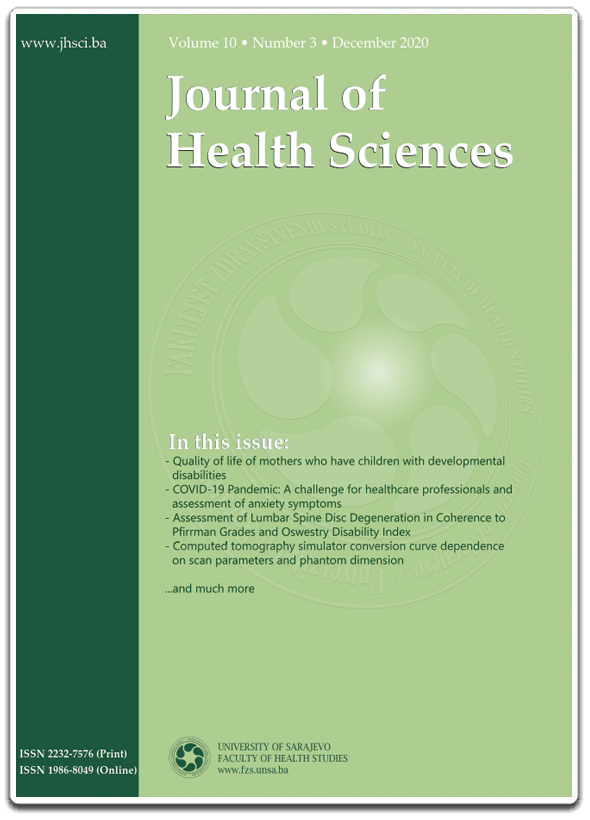The effect of temperature and chlorine residual on the presence of Legionella spp. in water systems of public and tourist facilities
DOI:
https://doi.org/10.17532/jhsci.2017.413Keywords:
Legionella, water temperature, residual free chlorineAbstract
Introduction: Legionella bacteria are ubiquitous microorganisms mostly found in artificial water environments, especially those which produce aerosol, such as swimming pools, saunas, and spas. Development of Legionella depends on several factors, including water temperature and chlorine. The aim of this study was to evaluate the occurrence of Legionella spp. to the temperature and free residual chlorine in tap water, water from fountains, swimming pools, cooling and heating systems.
Methods: We collected 238 samples of water taken from different places and analyzed the presence of Legionella spp. by BAS EN ISO 11731-2:2009 - Water quality – Detection and enumeration of Legionella - Part 2: A direct membrane filtration method for waters with low bacterial counts, as samples were the waters with low expectancy of bacterial contamination compared to the temperature and free residual chlorine. The X2 test was used to show statistical significance.
Results: Legionella spp. was detected in 18.62% of tap water and in 8.82% samples of water taken from fountains, swimming pools, and cooling and heating systems. The highest number of positive samples were detected in waters with the temperature higher than 20°C and lower than 50°C. The highest number of positive samples were reported by the concentration of free residual chlorine lower than 0.2 mg/l. The X2 test showed a statistically significant difference between positive and negative results for the presence of Legionella spp. among three groups of water samples.
Conclusion: The research has shown a connection between environmental factors and the presence of Legionella spp. in the water systems of public and tourist facilities.










